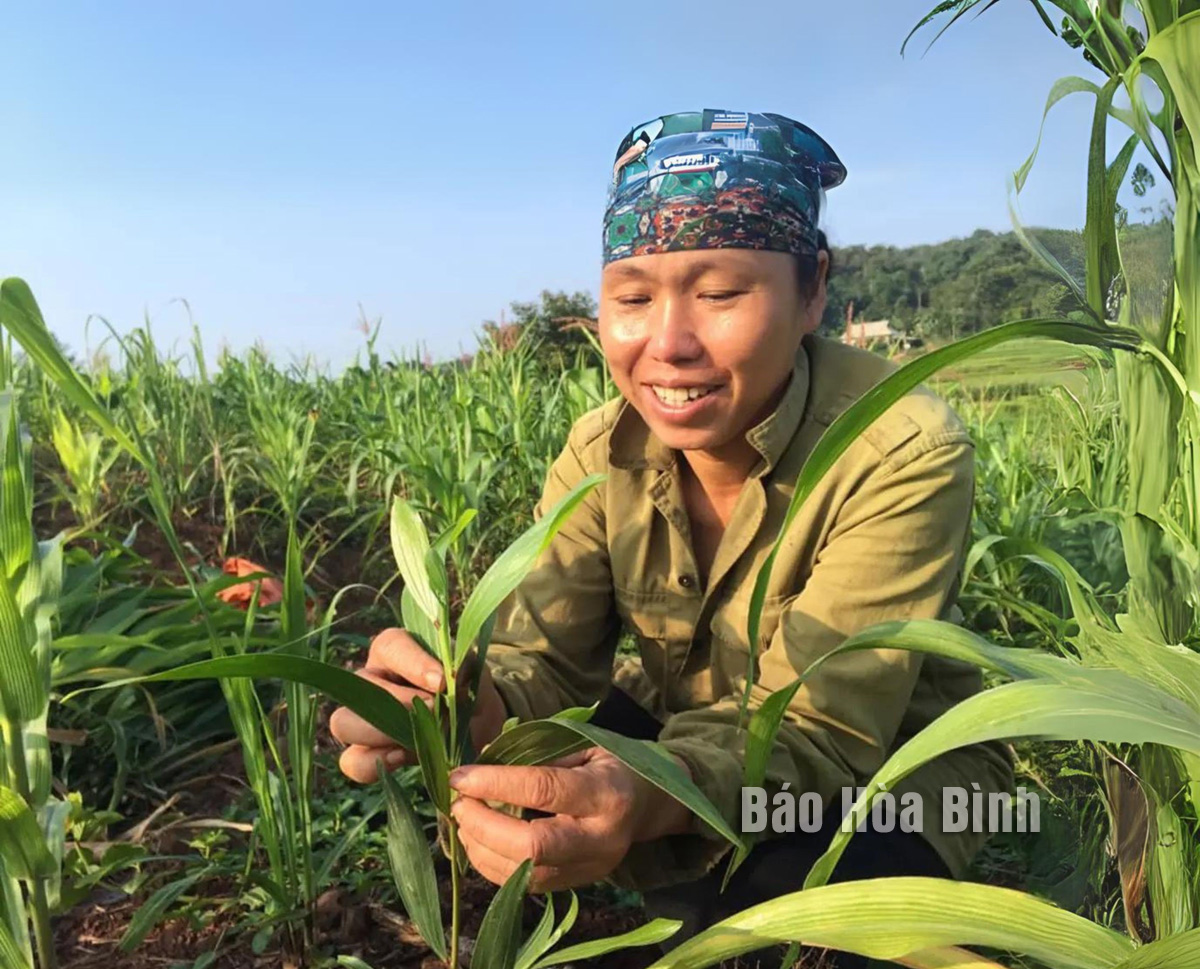
Having implemented a project on developing the agro-forestry sector and capitalising on the locality’s potential and strengths to produce goods in value chain, Kim Boi district of Hoa Binh province has generated jobs for local residents, helping them to create sustainable livelihoods.
Acacia seedlings are provided for local farmers.
Kim Lap, a remote commune with more than 90% of its population being ethnic minority people, built a cross-bred cow farming project worth over 400 million VND (15,700 USD), providing calves and technical training for 48 poor and near-poor households. Thanks to the model, many locals have escaped poverty.
Striving to become a new-style rural commune in 2024, Thach Yen has integrated various resources to help its residents improve incomes. During 2022-2023, it joined hands with competent divisions of the district to support job transition for rural youths, development of pig farming for impoverished households, and acacia seedlings for those in difficulties.
Vice Chairman of the communal People’s Committee Bui Van Hau said local ethnic minority people have also received assistance in economic management and introduction of products to the market.
According to Nguyen Van Tien, an official from the province’s board for ethnic minority affairs, Hoa Binh is carrying out various projects to create sustainable livelihoods for its residents. As of April, more than 94.14 billion VND was disbursed for them, or 44.55% of the allocated capital.
With the money, the board has worked closely with relevant sides to improve the efficiency of the local production, prioritising support for agricultural cooperatives to apply advanced technologies and promote value chain.
To date, localities have successfully developed over 30 cooperative brands such as Mai Chau purple garlic, Pa Co – Hang Kia black chicken, Muong Dong bamboo-tube rice, and Son Thuy longan. Production linkages have been maintained, bringing high revenue to firms and cooperatives, he said.
Hoa Binh province is undergoing a dynamic transformation amid Vietnam’s national digital transition. Building on Poliburo’s Resolution No. 57-NQ/TW on breakthroughs in science, technology, innovation, and national digital transformation, the province has rolled out a wide range of practical action plans. A standout initiative is the "Digital Literacy for All” movement, an effort to ensure that no one is left behind in the digital era.
Hoa Binh province is undergoing a dynamic transformation in the wake of the national digital transformation movement. Building on Resolution No. 57-NQ/TW of the Politburo on breakthroughs in science, technology, innovation, and national digital transformation, the province has implemented a wide range of practical action plans. A standout initiative is the "Digital Literacy for All” movement ambitious effort to ensure that no one is left behind in the digital age.
With a spirit of unity and proactive problem-solving, the Party Committee, the government and the people of Dong Lai Commune (Tan Lac District) have made great strides in implementing the resolutions of the 24th Party Congress of the commune for the 2020 - 2025 term. Focusing on leadership and practical actions, the commune has brought the Party’s resolutions into daily life, creating strong impacts and pushing the local development forward.
Amid the nationwide push for digital transformation, young people in Hoa Binh Province are stepping up as dynamic pioneers, applying technology to enhance Youth Union operations and expand the reach of youth-led initiatives. Through creativity and adaptability, Youth Union organizations at all levels have introduced a series of practical solutions, contributing to modern governance and community development.
In recent years, An Nghia commune, located in Lac Son district, has stepped up administrative reform, focusing on improving the quality and efficiency of its single-window service unit for receiving and processing administrative procedures. These improvements have helped create favourable conditions for local residents and organisations to handle administrative procedures, contributing to the commune’s broader socio-economic development.
The Prime Minister-approved master plan to develop the multi-use value of forests ecosystems through 2030, with a vision to 2050, aims to improve the management and sustainable use of forest resources, create jobs, increase incomes, and improve the living standards of ethnic minorities, people in mountainous and remote areas, forest workers and those living near forests.



